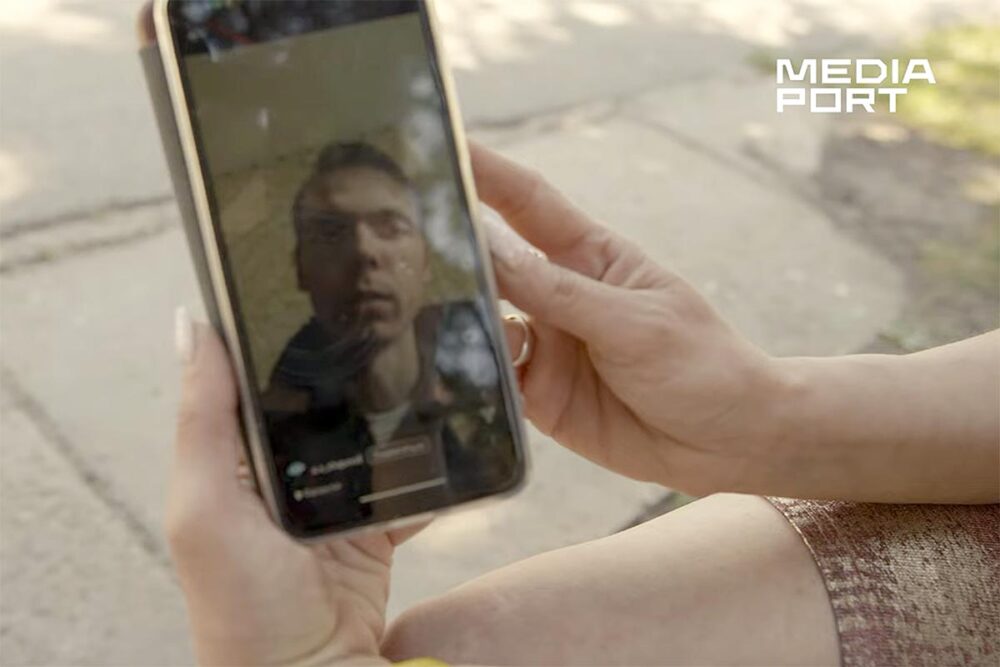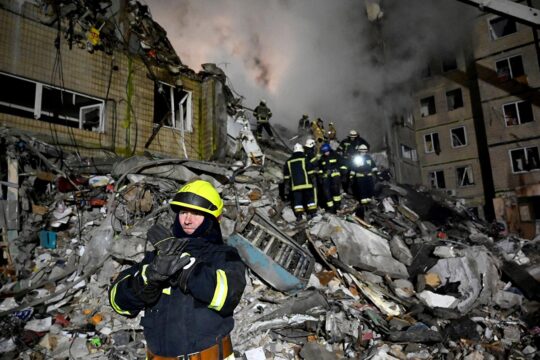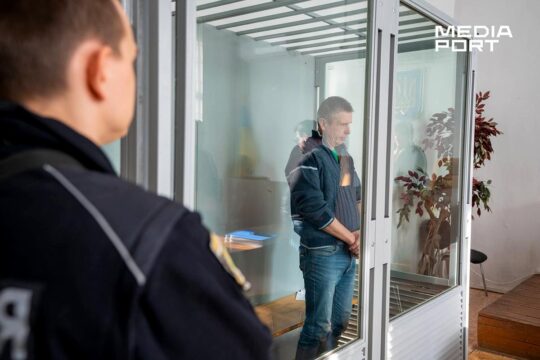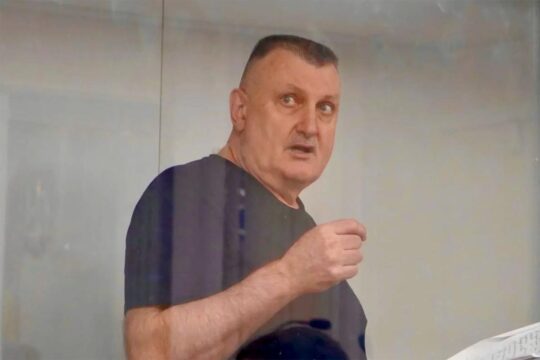Natalia Shapoval stayed six months in Balakliya under Russian occupation. After the city was invaded in the spring of 2022, the Russians established checkpoints and enforced their own order. But despite the danger, the family decided to stay in the city. So did Natalia’s 28-year-old son Andrii, who fell ill just before the full-scale invasion and worked remotely from home.
Andrii graduated from Kharkiv Automobile and Highway University, worked as a tyre salesman in Kharkiv, and lived in Kharkiv and Balakliya, in eastern Ukraine. At the request of his friend, who lived abroad, he was helping her grandmother during the occupation.
“On April 12, he went to help out this old lady. And then Andrii did not come back. We thought he had stayed overnight. We asked her, and she said no, he went home at 12:30 and told her: ‘Today is my birthday. I’m going to spend time with my parents.’ And he never came back,” Natalia says.
The parents went to the district police office where the occupiers were stationed. “We went there two days in a row. We were told that he was not there. And then [the police] came to our house, they looked like the FSB, men in uniform, with snipers and everything. They searched the house,” Natalia says. “They kept asking where my son was. How would we know? They took his laptop, they took my phone. And they said they would return them if they didn’t find anything compromising. We ‘believed’ them, of course,” she adds.
“That old lady also went to the local commandant. The commandant came out and said: ‘If I see you here again, you will end up where he is.’ And that was it. I don’t know if they were hunting [the men], how and why my son was detained. He would only go out to walk the dog around the house and then return home. And otherwise, he would go visit that old lady, there and back. It’s a straight road, 10 minutes on foot,” Natalia says.
Pleading ‘guilty’ on Instagram
Andrii usually left the house at 10:00. On the day of his disappearance, he left an hour late. “He was always at home at 1:30 pm, before the curfew, which was starting at 2 pm. But that morning he was an hour late. And that was it – he never came back,” Natalia continues.
On April 15, three days after his disappearance, a video message from Andrii was posted on his personal Instagram page, in which he allegedly pleaded ‘guilty’ to assisting the Ukrainian Armed Forces. Andrii’s family does not believe that this video was recorded voluntarily.
When asked about her son’s beliefs, Natalia replies that he is a true Ukrainian, open and sincere in his attitude towards people. “He would always speak his mind. He never thought about the fact that people are different and can say one thing and plan evil things behind someone’s back,” she says.
After the de-occupation of Balakliya, the family reported their son’s abduction to the Ukrainian police and appealed to the International Committee of the Red Cross, but so far, they have received no information about his whereabouts or his well-being.
She says she did not reach out to other Balakliya residents who are also searching for their missing loved ones. “Everyone is on their own... It’s easier for me to be on my own, with my husband. Each time it is very difficult to talk about it. We know that there are military exchanges. But why does no one think about civilians? They are people too,” Natalia says and wipes her tears.
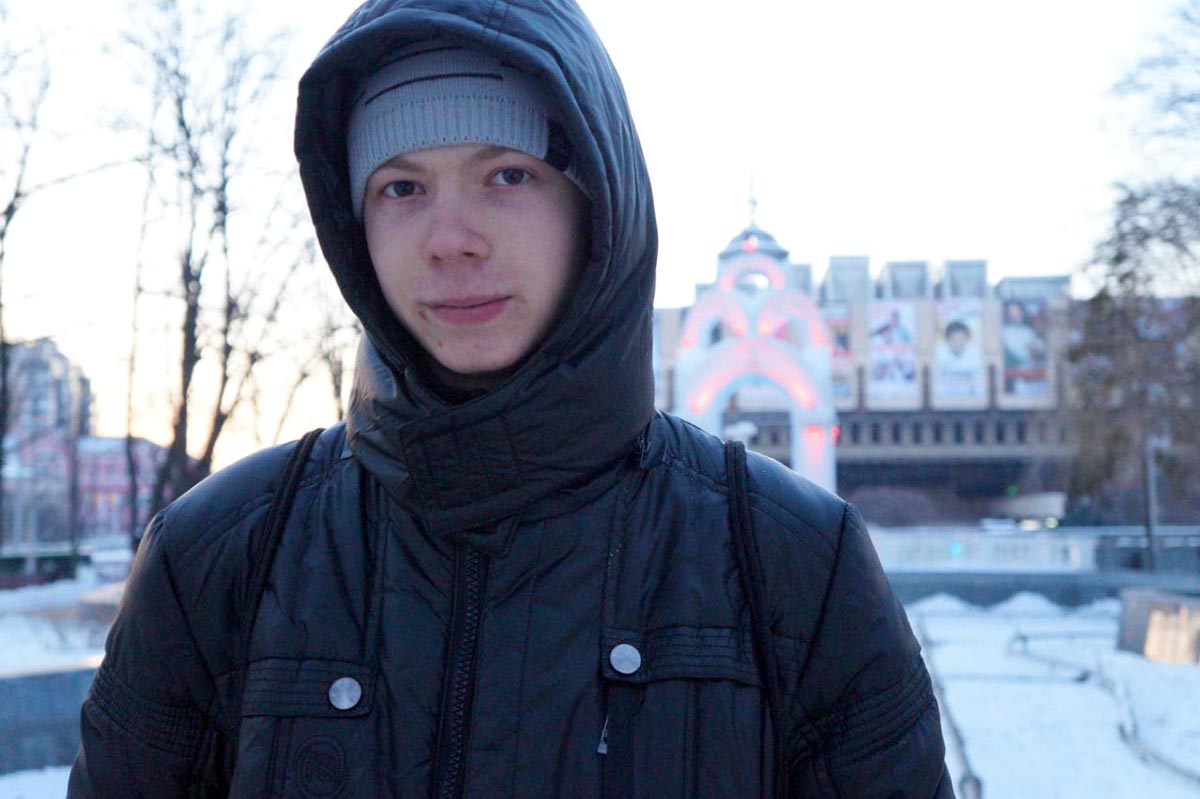
“We managed to exchange 200 civilians”
The vast majority of those released as part of prisoner exchanges are military personnel.
“There are no mechanisms for exchanging civilians, and they shouldn’t exist in the civilised world,” says Serhii Chebyshev, head of the Eastern Regional Centre for the Treatment of Prisoners of War.
At the same time, Ukraine was able to return civilians during the full-scale war. “To date, 3210 [Ukrainian] persons have been exchanged, including about 200 civilians. According to the Geneva Conventions, during a war or military operations, we can talk about war prisoners. The Russian occupiers simply capture civilians, they are considered hostages. According to the Geneva Conventions, they cannot be exchanged - such a procedure is simply not stipulated. But we managed to do it,” Chebyshev said.
The Centre does not disclose how the negotiations between Ukraine and the aggressor are conducted. It is known that Ukraine has no other choice but to hand over Russian servicemen in exchange for civilians, and, according to the head of the Eastern Regional Centre, the aggressor is taking advantage of this.
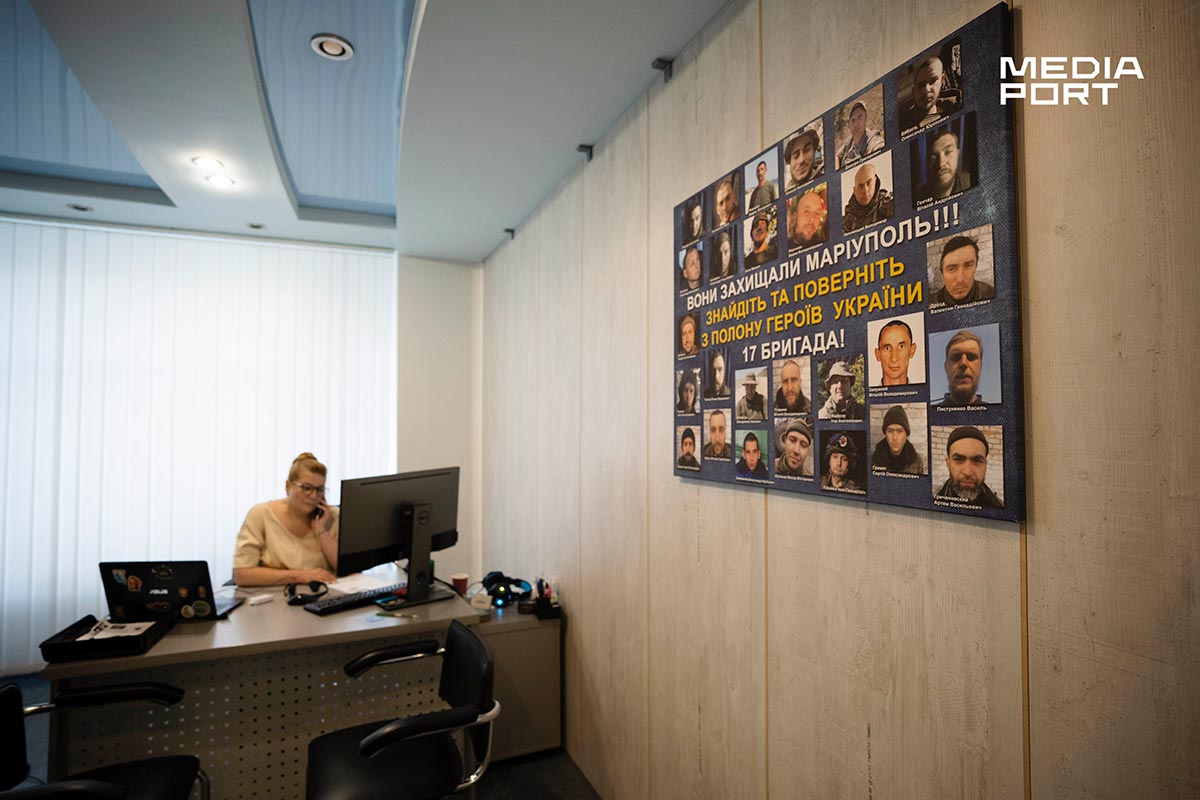
“It makes sense to write to the devil himself”
The Kharkiv Human Rights Group (KHRG) provides free legal and psychological assistance to relatives of missing civilians. Its representatives travel to communities with monitoring visits to talk to people who have survived the occupation, they receive information by phone and online, and meet the families in their office in Kharkiv.
“We cannot guarantee that we will be able to establish the whereabouts of your loved one. However, over the years of war, the specialists of the KHRG managed to find more than 30% of the people who were reported to us,” the organisation states.
According to the statistics provided to MediaPort by Tamila Bespala, a lawyer of the Kharkiv Human Rights Group, there are 1166 cases in the works, 978 of which concern prisoners of war and 188 civilians.
“We have a broad approach to the search for civilian prisoners. We have several angles. First of all, the legal one, which includes work at both national and international levels. We prepare requests not only within Ukraine, but also to as many authorities in the temporarily occupied territory as possible, and certainly to Russian authorities. On average, it is about 30 requests and applications per search. We have to exhaust all possible and impossible means,” Bespala comments.
“When state authorities cannot communicate with Russia or the occupied territories, we have no obstacles to this. Sometimes they send a bunch of answers, for example: ‘We don’t have this person.’ And then this person is exchanged. There have been cases where relatives have more or less ‘legally buried’ a person, and then we receive a reply: ‘We have him.’ We always tell relatives: until there is a death certificate, a body, remains, you need to keep looking,” the lawyer continues.
“When you are searching and really want to find someone, it makes sense to write to the devil himself,” she adds.
Requests to UN agencies
In addition, the KHRG writes to international institutions, namely the UN agencies. “First of all, we refer to the Working Group on Enforced or Involuntary Disappearances. A request to this group usually contains three questions: where exactly is the person, the person’s health condition and the third - the status [on which grounds he or she is detained],” Bespala explains. Then, communication begins: “So the UN has considered our request, and if it meets all the requirements, they send a letter to the relevant authority representing Russia.”
“When we receive an inquiry from relatives, it is a priority for us. But I want to say that now the Working Group’s office is overloaded, they can’t keep up because the number of [requests] is so high. In our country alone, it has exceeded a thousand, just imagine! It’s a very bureaucratic system,” the lawyer explains.
The KHRG lawyers also appeal to the UN Human Rights Committee. Especially in cases of torture: “It is not only requests and correspondence, or some kind of influence on the Russian authorities, in such a request we also seek financial compensation.” According to Bespala, within the practical experience of the KHRG, there have been cases when the prisoners, about whom the human rights activists had been actively communicating, were exchanged.
“There have also been cases when we have received a response from Russia that the person was there. We pass it on to the official authorities of Ukraine: ‘We have this answer.’ Then they confirm it in their own way,” the lawyer says. “People often say: ‘I called the Red Cross.’ That’s great, but you can’t exactly put it on record anywhere, you know? That’s why we prepare everything,” she adds.
“We don’t have him” / “We have him”
She points out the versatility of the contacts with Russia-controlled structures. “There were cases when we had to react immediately, for example, when we knew that a person had been wounded in the ‘LNR’ area [Luhansk People’s Republic]. We contacted the hospitals and the authorities there straight away. There were cases when that person was returned to our territory. This was the tendency for some time, but then it changed. There are situations when you write a request and get a response: ‘We don’t have him.’ You write a new request three months later: ‘We have him.’ You no longer need to write to some of the previous authorities, new ones have appeared,” the lawyer explains.
The approach of international institutions has also changed. Whereas previously human rights defenders could receive “a few miserable sentences” in response, now we are talking about “legal correspondence” with the UN agencies, she says.
38,000 missing Ukrainians, military and civilian
As of today, the Ukrainian Unified Register of Missing Persons under Special Circumstances contains information on about 38,000 Ukrainians, both military and civilian.
According to Olena Belyachkova, coordinator of the groups of families of prisoners and missing persons within the Media Initiative for Human Rights, the Russian aggressor often does not confirm the detention, constantly moves people around, which complicates the search, and does not allow Red Cross representatives to visit them. Over 100 places where the Russian authorities are holding Ukrainians were identified, located on an online map.
Balakliya resident Natalia Shapoval says she has been waiting two years for at least some news from her son Andrii. She hopes that the International Committee of the Red Cross will strengthen its work and that Andrii will be found. “I heard that some people are found and there are visits to see the conditions of their detention. It was even said that they could receive pastries, apples, notes from relatives, transmit their messages. But nothing for our son. I believe he is alive. I think he is strong and will wait until his release,” Natalia says.
This report is part of our coverage of war crimes justice produced in partnership with Ukrainian journalists. A first version of this article was published on the "Mediaport" website.



